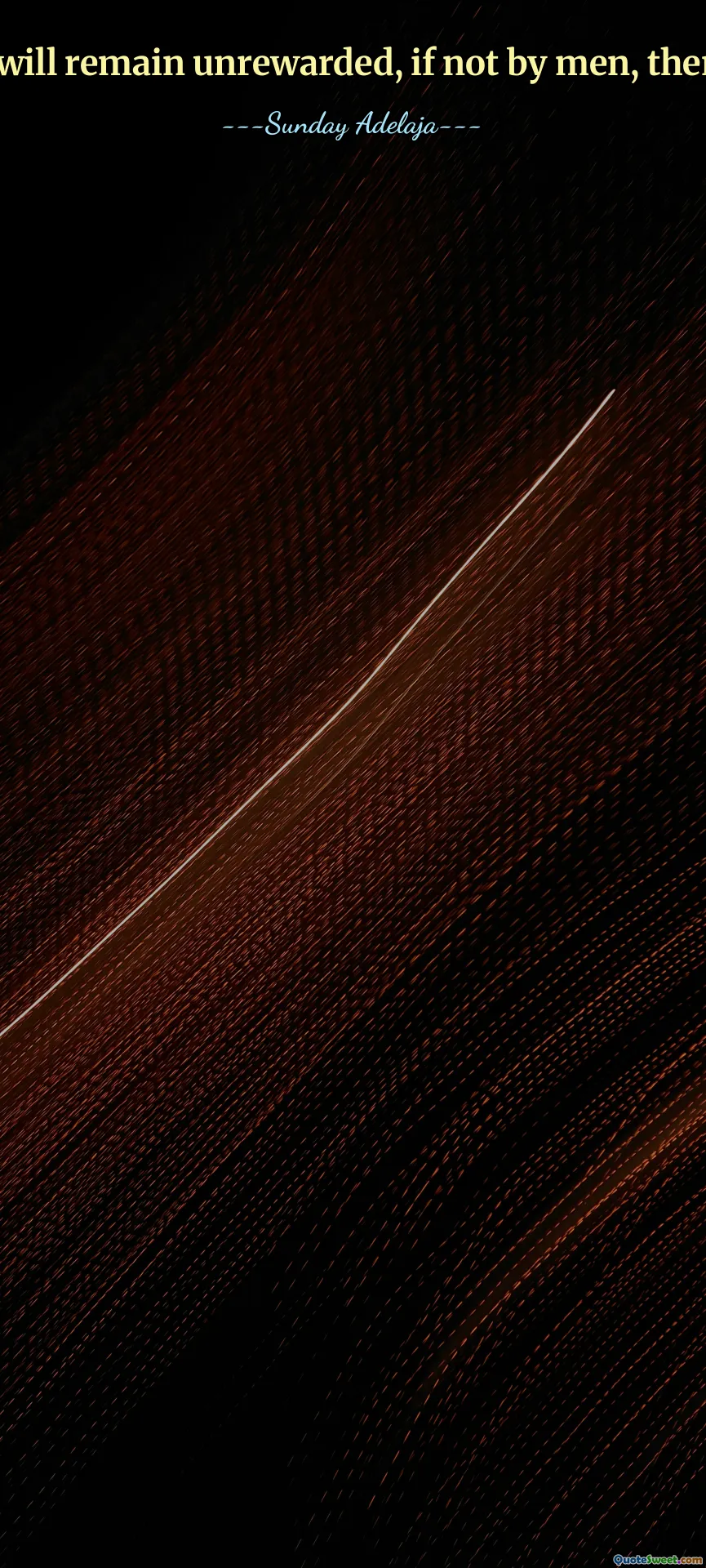
No good will remain unrewarded, if not by men, then by God.
This quote highlights a fundamental principle of justice and moral reciprocity. It suggests that all good deeds and virtuous actions do not go unnoticed or unrecognized, either by fellow humans or by a higher power. The idea emphasizes the importance of integrity and kindness, implying that genuine goodness ultimately benefits the doer, whether through immediate acknowledgment from people or through divine acknowledgment and recompense. It encourages individuals to continue their positive actions despite the possibility of no immediate recognition from society because divine justice will ultimately prevail. This perspective can serve as a powerful motivation, especially in situations where human appreciation or reward seems absent. It also reassures that moral actions are not futile; they are inherently valuable and will find their proper acknowledgment in the grand scheme of things. Such a belief fosters patience, perseverance, and hope. Additionally, it underlines the interconnectedness of human morality and spiritual accountability, suggesting that ethical conduct is a dual pathway—appreciated by society and divine entities. For believers, it reinforces faith in divine justice and the notion that ultimate justice belongs to God. For others, it can be viewed as a generalized moral code encouraging ethical consistency, fostering a culture of mutual respect, and reaffirming the importance of doing good even without immediate reward. Ultimately, this quote can serve as a guiding principle to motivate persevering kindness, patience in adversity, and unwavering integrity in all actions, trusting that everything good will be recognized and rewarded at the right time.
---Sunday Adelaja---







